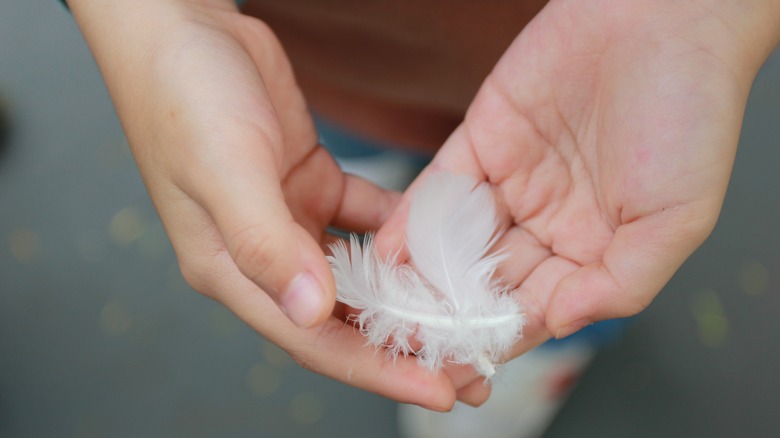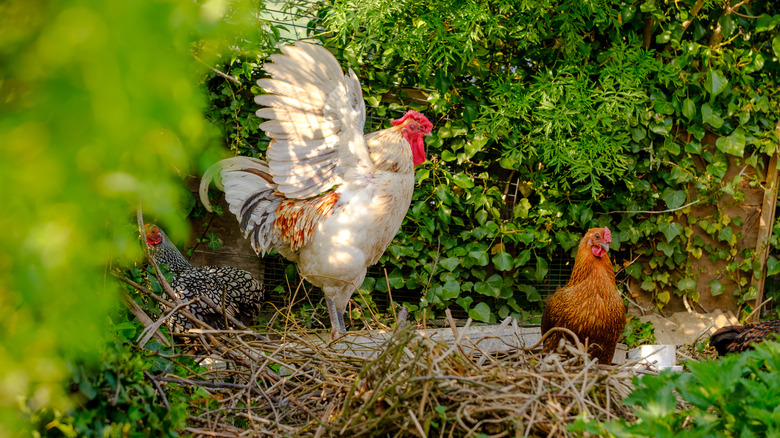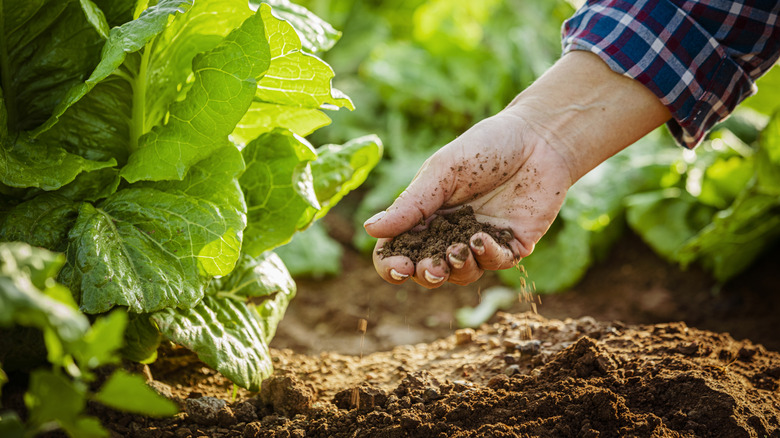Why People Bury Bird Feathers In Their Garden Soil (& Should You Try It?)
Burying bird feathers in your garden for healthier soil may sound like some witchy-woo-woo when you hear it for the first time. But you would be mistaken for thinking it boils down to some inaccurate folklore. While burying random feathers you find from unknown birds is not advised, all feathers are made up of keratin. When broken down, they provide soil with more nitrogen as well as phosphorus, potassium, and other important nutrients plants need. Feathers will break down much faster when you add them to your compost bin with carbon-rich material as microorganisms begin quickly degrading them; still, they can be buried in garden soil for similar benefits at slower rates.
Nitrogen, phosphorus, and potassium play very important roles in the garden to support growth and encourage healthier plants. You'll recognize these pillars of plant development on bags of commercial fertilizer referred to as N-P-K. Composting bird feathers — that you can confirm are safe and uncontaminated by diseased birds — can be used to fertilize your garden and boost your soil's health when you already have experience with composting or have birds whose waste could easily support your garden for free.
Using bird feathers in your compost
Burying bird feathers in your compost will augment their degradation as the pile naturally heats up to break down materials, so your garden plants can easily take up the nutrients left behind. However, before composting feathers, you'll want to consider some things. As mentioned, you don't want to source feathers from random birds visiting your yard. Instead, healthy pet birds like chickens, ducks, geese, or even parrots can be a good source when molting. Raising chickens for meat is another common way people keep poultry feather waste for a DIY compost, or if you happen to have a couple of pillows made with 100% down, the feather stuffing can be recycled this way.
The other consideration is wind. Many people who have tried to compost feathers have failed during inclement weather – sometimes turning them off from the practice entirely — when the feathers are carried off by the wind and strewn about their neighborhood. There are easy ways to combat this, though, including wetting the feathers with water before composting or quickly burying them with heavier items rather than leaving them on top to fly away. With disease-free feathers and the assurance that they will stay in the pile, using bird feathers in your compost is as simple as mixing them in with your typical carbon sources – such as hay, leaves, or cardboard, also known as "browns" — and giving them a few months to break down before using in your garden.
Other ways to benefit garden soil using bird waste
It's not lost on us that many people — even those who would like to compost with feathers — might not have regular access to enough of them to create this nutrient-rich fertilizer or mulch. Alternatively, you might not have the space or the want to start composting. If you are in this boat, feather meal is one great option. Made up of pulverized, hydrolyzed, and dried poultry feathers, feather meal makes it easy to add extra nutrients, namely nitrogen, to your soil for a healthier garden. The natural fertilizer slowly releases the macronutrient for your crops to take up, allowing for more vigorous growth in nitrogen-loving plants like kale, lettuce, spinach, and broccoli.
Keep in mind, however, that since feather meal is entirely made up of nitrogen, your plants won't have access to the same minerals that composted feathers offer. Without potassium, phosphorus, iron, and more, feather meal can create soil imbalances if your soil isn't already lacking nitrogen. So, unless you're looking for lots of leaf growth (which reduces the energy your plants put into producing fruit, flowers, and roots), you should stick to either composting or burying bird feathers in your soil for them to degrade overtime, imbuing your garden with small amounts of necessary nutrients.


